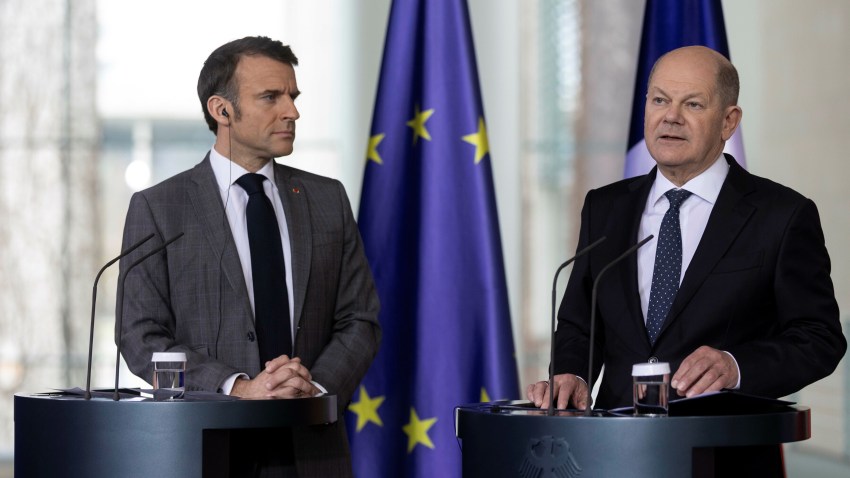Early last month while on a visit to Prague, French President French Macron used stark language in speaking about Europe’s role in supporting Ukraine. Just days before, Macron had suggested Europeans might need to send troops to Ukraine, only to be fiercely rebuked by several NATO allies. But in Prague, he stood his ground, warning that the moment of truth was arriving in Europe when “it will be appropriate not to be a coward.”
Pointing to the first interstate war on European soil since World War II, with powers that “are extending every day their threat of attacking us,” Macron declared that European leaders will “have to live up to history and the courage it requires.”
In Berlin, the words were perceived as little short of a direct insult, adding to the growing tensions between the two countries. And one word in particular irritated Germany, which felt the criticism was leveled in its direction. What Europe does not need, declared German Defense Minister Boris Pistorius in ruling out any boots on the ground in Ukraine, is “talk about … having more courage or less courage.”

